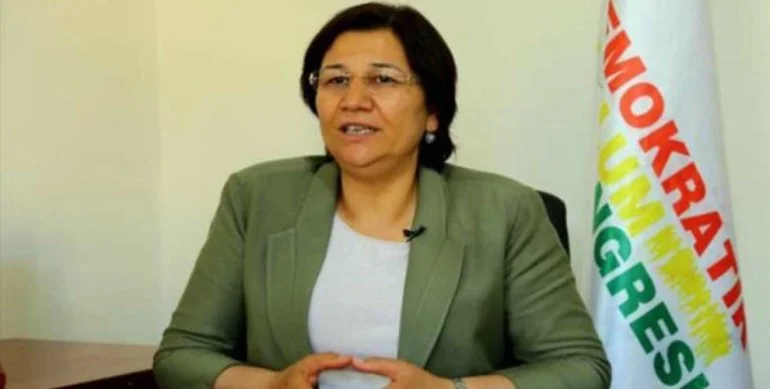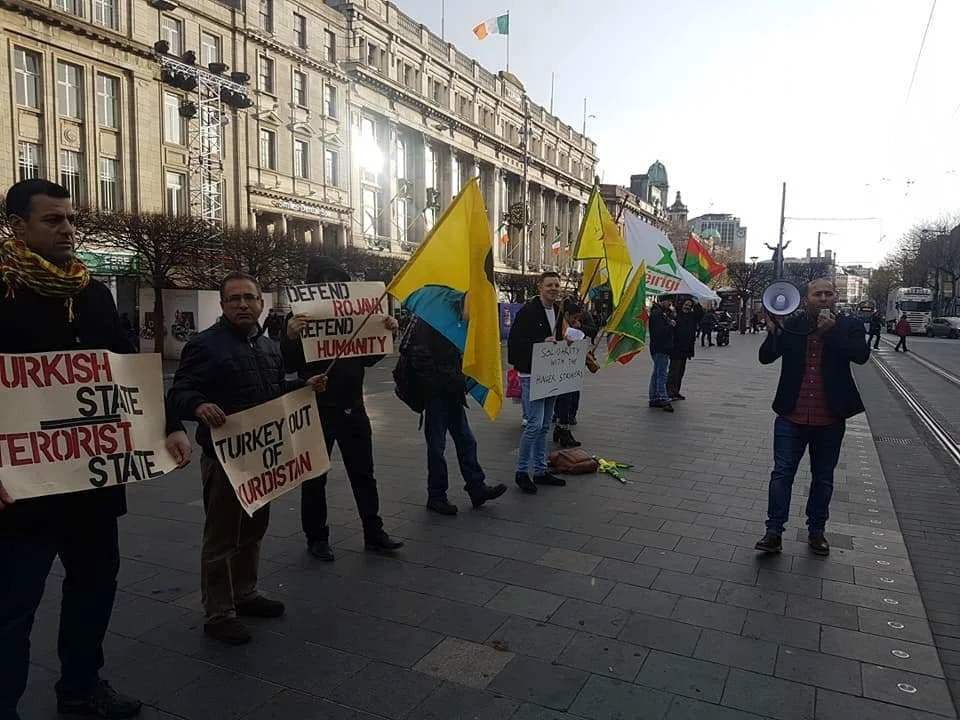Kurdish Struggle Faces Multiple Challenges Following US Betrayal
On November 7th Kurdish MP Leyla Guven of the Kurdish HDP (Peoples’ Democratic Party) began a hunger strike from Amed Prison in Turkey where she has been held since January. Her health is now in a perilous condition. A wave of solidarity hunger strikes have been taking place across many towns throughout the Kurdish regions of Turkey, Iraq, Iran and Syria as well as in cities across Europe.
On December 15th a group of 42 PKK and PAJK prisoners, both male and female, spread across different prisons in Turkish Kurdistan began an all-out hunger strike and were joined by a second wave of prisoners on December 26th.
The demands of the hunger strikers are simple – an end to the isolation of Abdullah Ocalan from his legal team. Ocalan, the de-facto leader of the PKK, remains the sole prisoner on Imril Island where he has been held since 1999 in a scenario that has been compared to the imprisonment of Nelson Mandela. Turkey refuses to listen to any demands for his release or improvements to his conditions.
Abdullah Ocalan
In addition to the escalating hunger strike in Turkey, the last ten days have also witnessed rapid shifts in political alliances and military formations in the northern Syrian region of Rojava. While a betrayal of the Kurds by the United States was long predicted, the timing of that betrayal by US President Donald Trump appears to have taken everyone, including even the US military, by surprise.
The Trump announcement came as Turkey massed official and unofficial forces for an offensive on the Kurdish controlled city of Manjib, located more than 20km inside Syria’s international border. In March of this year Turkey used a similar coalition of Free Syrian Army, jihadis and Turkish military units to overrun the Syrian city of Afrin which had been under Kurdish control. The Kurdish People’s Protection Units, commonly known as the YPG, had little chance against such overwhelming military strength.
Kurds are acutely aware of the fate that awaits them should Turkey attack Manjib. They remember the Turkish demolition of Kurdish cities within Turkey itself in 2015 when Turkish President Erdogan labelled any adversaries as ‘terrorists’, justifying arbitrary killings and imprisonment, a process repeated in the Afrin invasion.
City of Cizre following Turkish onslaught in 2015
The news that the YPG / YPJ have now asked the Syrian Arab Army to take up defensive positions in and around Manjib should therefore come as no major surprise. The Kurdish and Syrian armed forces have a shared interest in preventing any expansion of the existing Turkish land-grab in Syrian Kurdistan. One need look no further than Cyprus to see how ‘temporary’ Turkish interventions can become permanent.
With the United State no longer willing to protect the Kurds from Turkish aggression, it was almost inevitable that they would turn to the government of Bashar Al Assad and by extension his Russian allies.
The Rojavan revolutionary project of the last six years has always faced major challenges – reflecting the longer-standing challenges facing the Kurdish people. The secret Sykes-Picot Agreement of 1916 saw the imperial powers of Britain, France and pre-revolutionary Russia leave the Kurds as a nation without a state – dividing the area known as Kurdisation between Turkey, Syria, Iraq and Iran. In the intervening century the Kurds have been repeatedly used as proxies by the Western Imperial powers, only to be repeatedly abandoned at the critical hour.
The imminent withdrawal of US forces from Syria has already created new realities on the ground. Whether the Kurdish forces and the Syrian government can reach some form of long-term agreement that is acceptable to both parties remains to be seen.
A Kurdish / Syrian state alliance that also restored Syria’s pre-conflict border with Turkey would be the among the worst-case outcomes for Turkey, ISIS, Israel, the Gulf States and the US. Conversely a full blown conflict between the Kurds and the Syrian national government would serve the interests of those same imperial and regressive forces.
Éirígí has long supported the Kurdish demand for self-determination, while also recognising the historic and contemporary complexities of a region that has suffered from centuries of interference by Western powers.
If endless conflict is to be avoided the existing states of Turkey, Syria, Iraq and Iran will need to make an accommodation with the estimated 25m Kurds that live within their borders. The main Kurdish liberation forces in both Turkey and Syria, in the form of the PKK, YPG and YPJ, have put forward proposals that would allow for a form of autonomous self-government within the existing international states – a recognition of the objective conditions within which their struggle exists. Similar compromises by the other players in the region might hold the potential to plot a path towards permanent justice and peace.
Progressives here in Ireland must actively support the right of the Kurdish people to live free from discrimination, persecution and ethnic cleansing. On Saturday, December 22nd Éirígí members supported an emergency protest in Dublin city centre which was organised by a number of Kurdish support groups. Statements were read out calling for solidarity with the Kurdish struggle, the hunger strikers and against Turkish aggression.
Calls were also made to defend the gains of recent years, particularly for Kurdish women and for an effective campaign for the release of Abdullah Ocalan and for the de-listing of the PKK as a ‘terrorist’ organisation within the EU. Such a de-listing would lift a numerous restrictions on Kurds organising within the EU and undermine Erdogan’s government ability to plausibly label and punish an entire people as ‘terrorists’.




